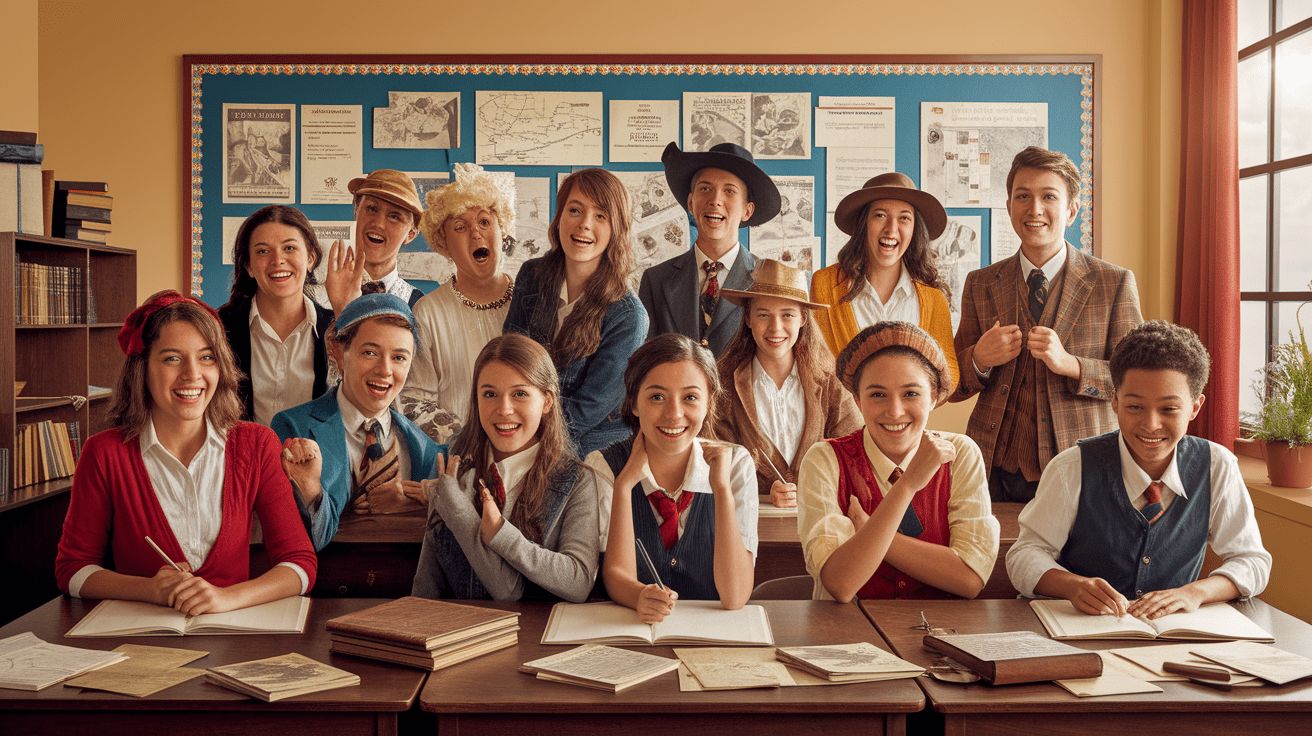Opening Act
Lights, camera… learning! Imagine stepping into the shoes of a historical figure or debating international policy in a Model United Nations session. That’s the magic of role-play in social studies education — a vibrant blend of drama and discovery. By transforming classrooms into arenas for government simulation, mock trials, or democracy simulations, teachers invite students into an immersive world that makes history and civics leap off the page. This kind of experiential education not only fuels curiosity but encourages students to think critically, collaborate, and empathize with perspectives far different from their own.

Crafting the Script
Great role-play experiences start with thoughtful planning. In the world of “social studies stagecraft,” teachers become scriptwriters, designing scenarios that align with curriculum goals and student abilities. Whether it’s historical reenactment of a pivotal moment or a problem-based learning exercise involving civic responsibility, the crafting stage is where imaginative ideas meet educational intent.

Setting clear objectives ensures every simulation has purpose and direction. Consider using effective integration strategies that anchor role-play within your lessons. Incorporate research tasks, character briefs, and authentic primary sources to deepen students’ historical perspective-taking. Align scenarios with skill-building in areas like decision-making, conflict resolution, and cultural awareness.
Directing the Action
Once the script is set, the teacher becomes the director. This is where interactive learning truly takes center stage. Use active learning strategies to spark student engagement, whether in elementary classes practicing social skills development through simple dialogue exchanges, or high schoolers debating diplomatic solutions in a tense international crisis.

Creating an atmosphere of trust is key to enabling students to fully embrace their roles. Guidance from resources like role-playing for developing social situations can help foster safe spaces for expression, supporting both emotional growth and academic mastery. Teachers can enhance realism by employing props, digital tools in technology-enhanced social studies simulations, or even rearranging classroom space to mimic historical settings for immersive learning.
- Encourage students to stay “in character” to strengthen empathy and civic literacy.
- Facilitate collaboration with clear timelines and task roles.
- Support less confident learners through differentiated instruction and scaffolding.
Reviewing the Performance
Every great production deserves a review. In educational terms, this means reflection and assessment. After the simulation ends, guide students to step back from their roles and discuss what they learned — not just about the historical or civic content, but about themselves and their peers.

Reflective discussions and evaluations are essential for cementing knowledge and linking experiences back to key concepts. Use authentic assessment techniques to measure both the factual understanding and the skills developed, such as civic engagement, perspective-taking exercises, and critical thinking. Journaling, peer feedback sessions, or multimedia presentations can be effective ways for students to articulate their learning.
For younger learners, tools from play-based social skills role-play can guide reflection, helping them recognize feelings and relationships formed during the activity.
Final Curtain
When the curtain falls on a well-executed role-play, it leaves a lasting impression — not just on content mastery, but on students’ confidence, curiosity, and compassion. Through dynamic collaborative learning experiences, role-playing nurtures essential life skills while bringing history and civics vividly to life. As an educational “director,” you have the power to turn lessons into adventures, making citizenship education a lived experience rather than a chapter in a textbook. So pull back the curtain on passive learning, take a bow for active engagement, and let the social studies stage come alive!




